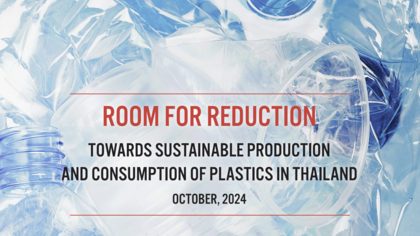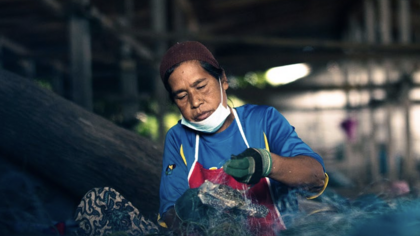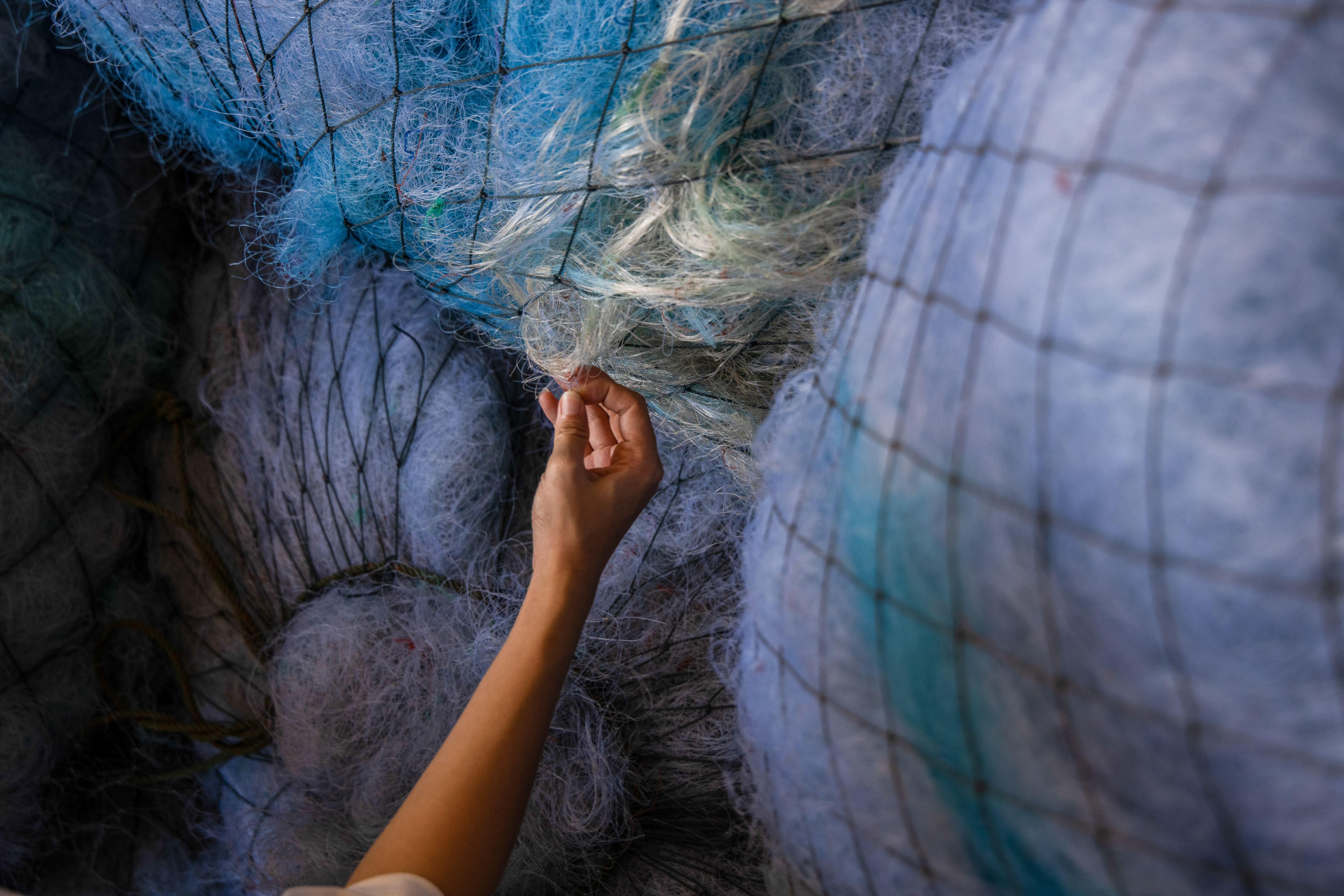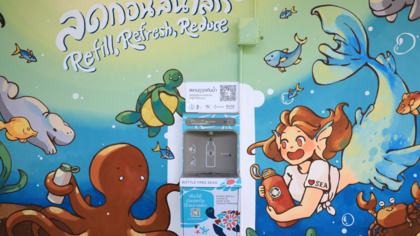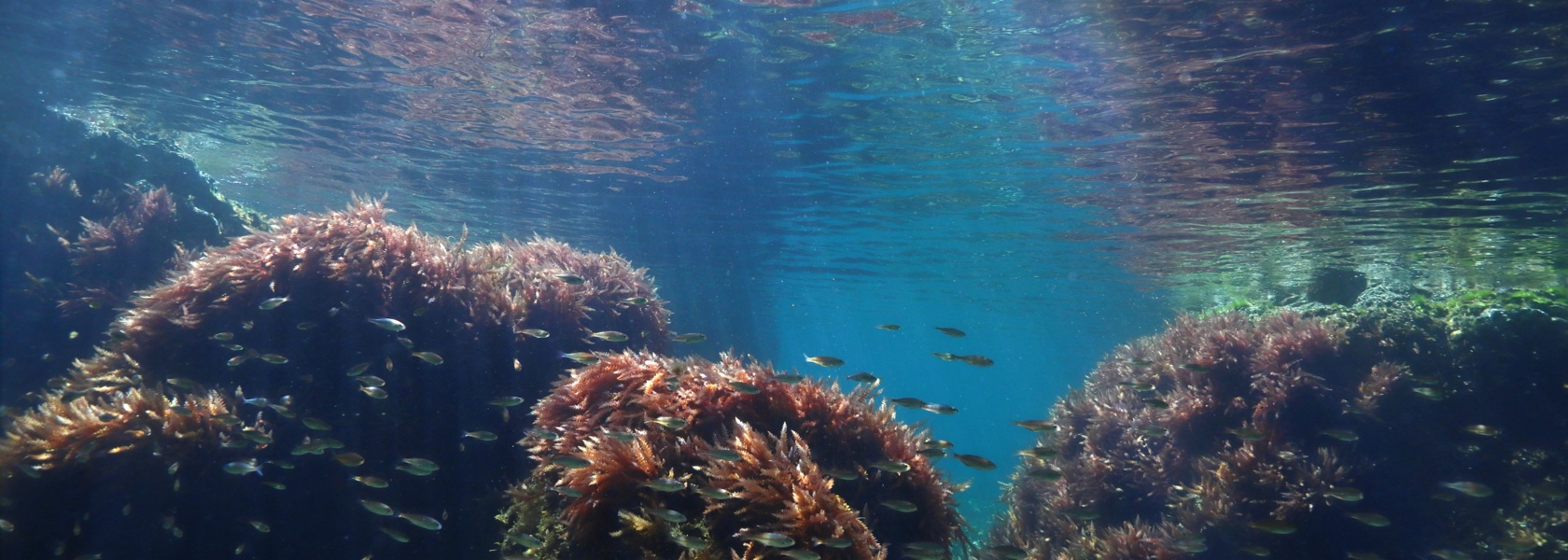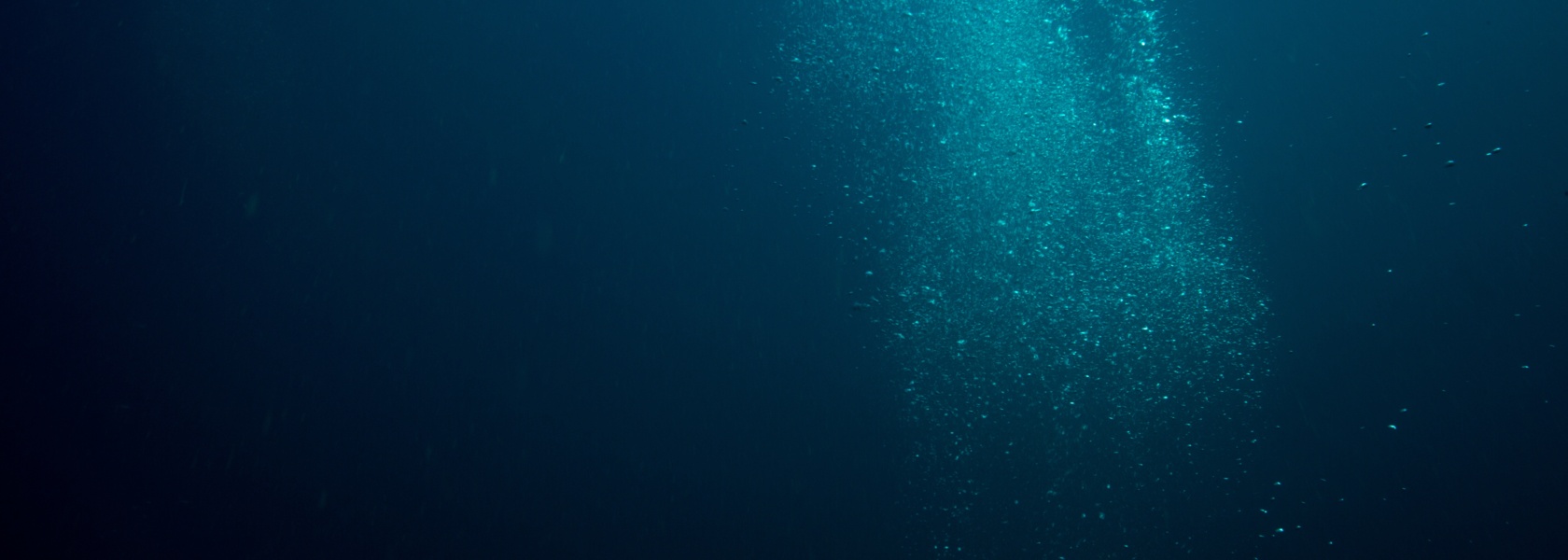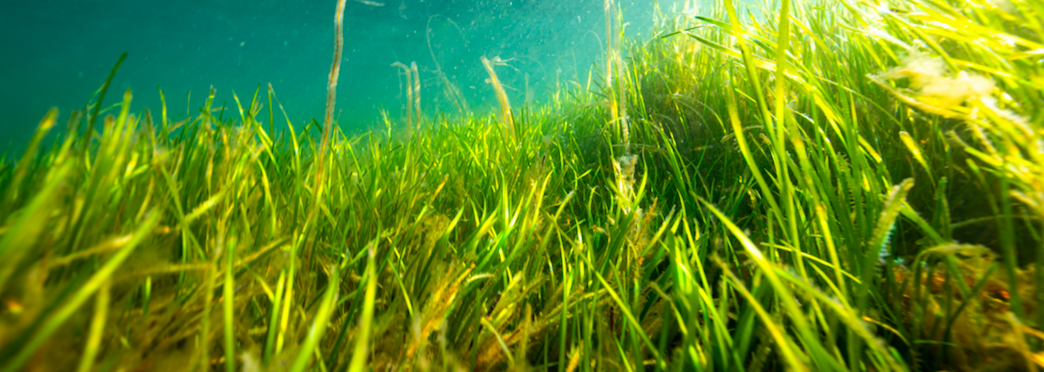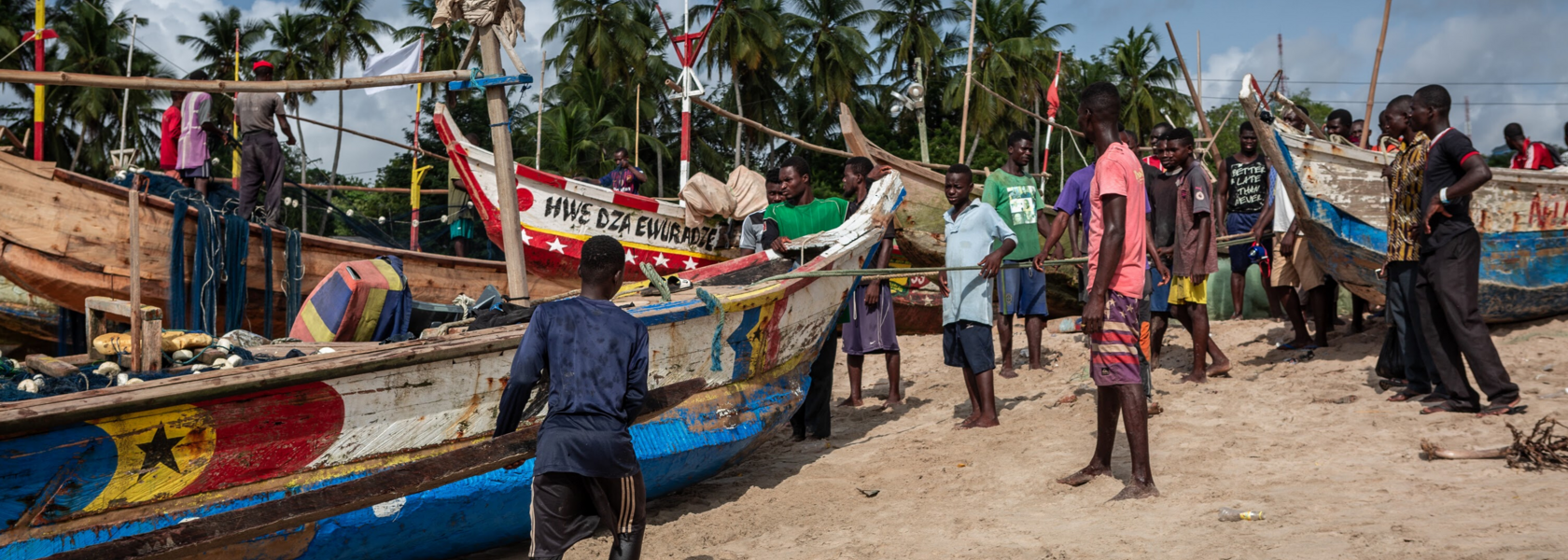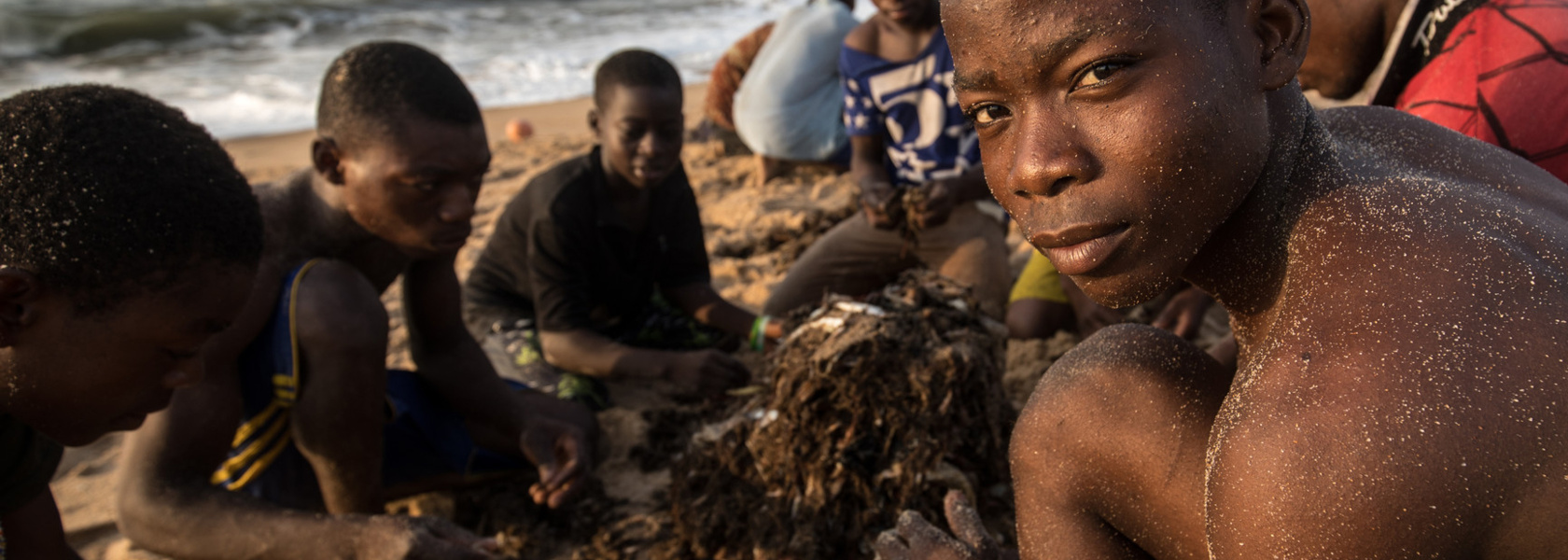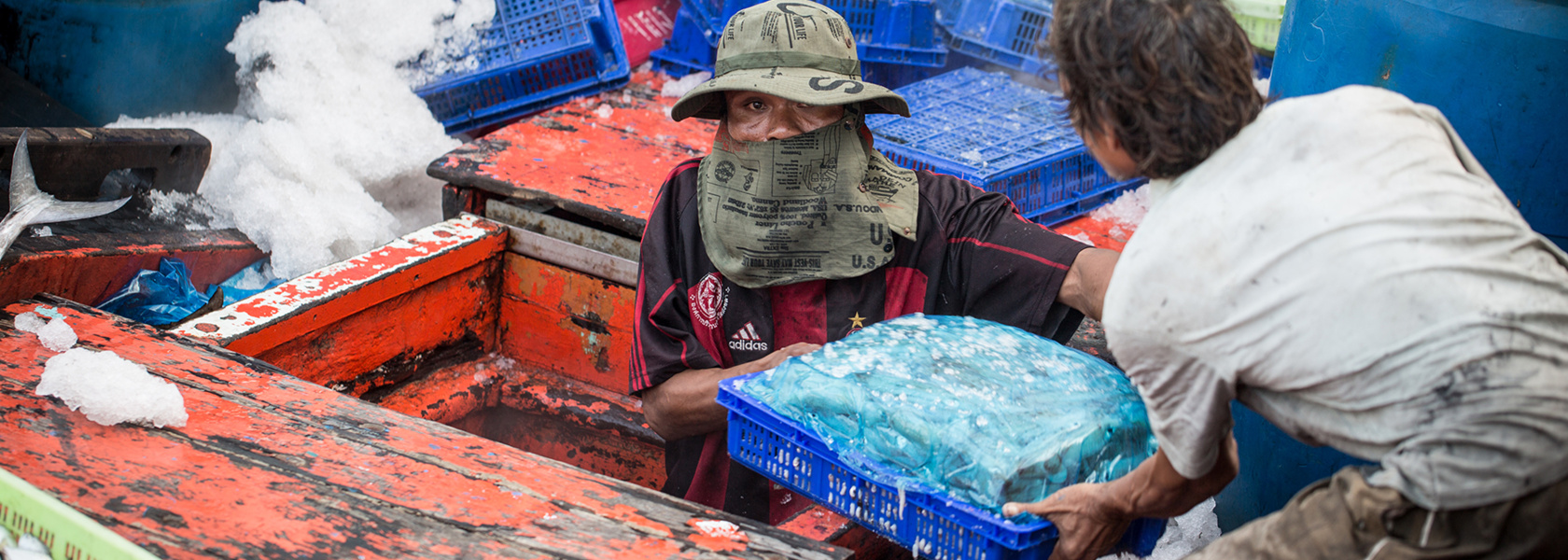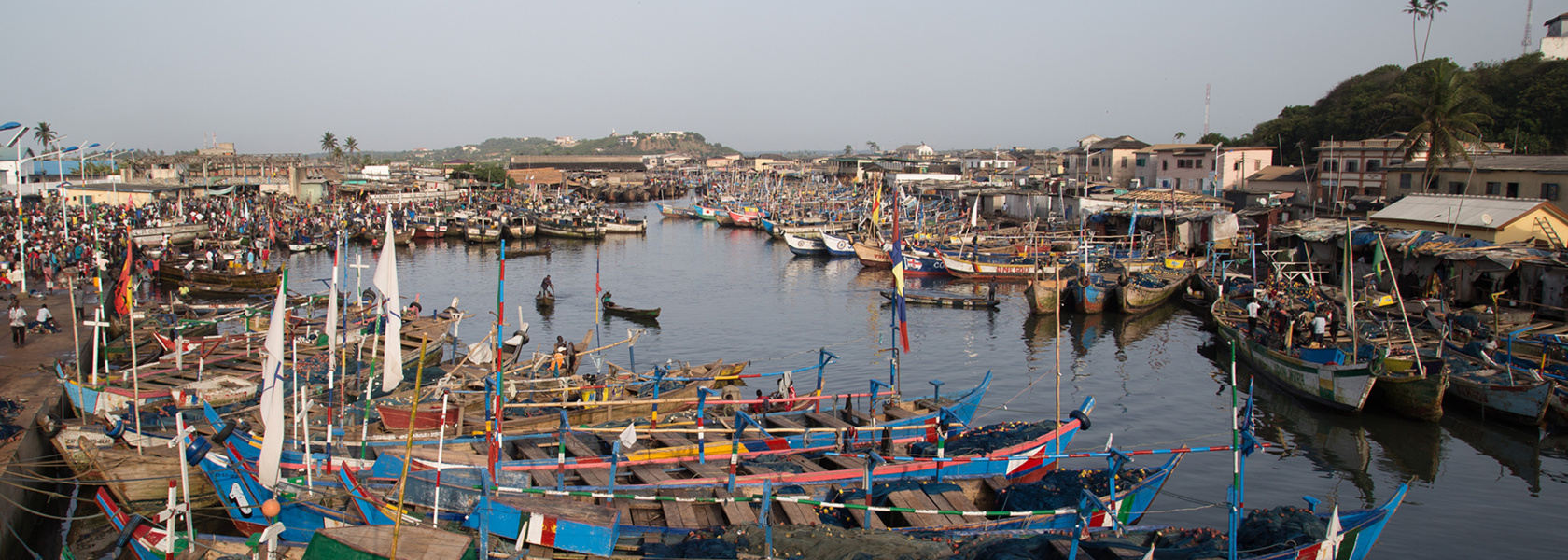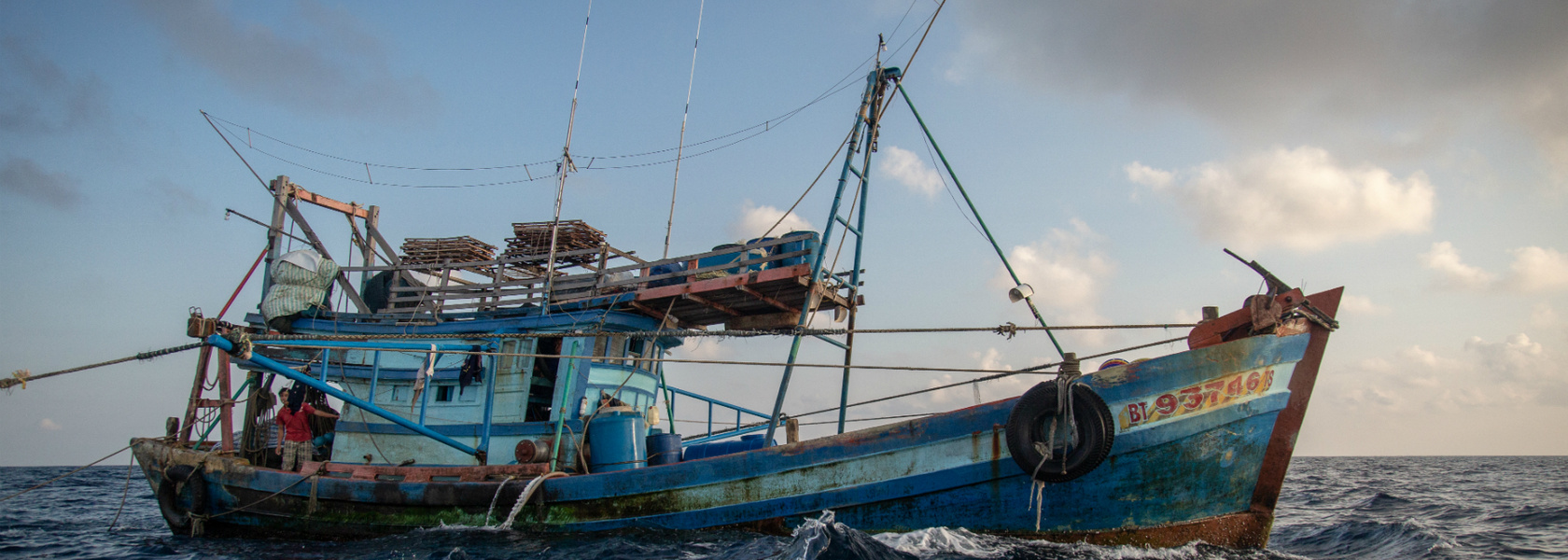Plastic pollution poses a chronic, pervasive threat to people and the planet. You can find it in the deepest part of our ocean, at the highest mountain top, and even in our bodies. It chokes our environment and contributes to the worsening climate crisis, making it critical we act swiftly and decisively to end it. Through our Net Free Seas (NFS) and Bottle Free Seas (BFS) projects, we are working to combat the global plastics crisis by addressing the problem at all stages of its lifecycle. We are also ensuring solutions involve and benefit local communities, to guarantee lasting, resilient progress.
The plastics crisis
The sheer magnitude of plastic waste on our planet is overwhelming. It is a critical threat to human health and our environmental security. Every piece of plastic that has ever been produced still exists in our environment today, with the majority of it ending up in our oceans. The slow process of biodegradation means that plastic waste persists for centuries, breaking down into microplastics that disrupt the health of our ecosystems and bodies, threatening humans and animals alike.
Plastic also has a massive carbon footprint, releasing billions of tonnes of greenhouse gases every year – an amount that is only increasing. In 2019, plastic production generated 1.8 billion tonnes of greenhouse gas (GHG) emissions, which is 3.4% of global emissions. This is expected to double by 2060, baking more heat into our planet and putting all our futures at risk.
Plastic pollution has direct consequences for coastal communities that rely on ocean industries for survival. We can no longer treat this crisis as a “waste” only problem – it is critical we reduce, and eventually end, global primary plastic production.
We are working towards a plastic-free future with Net Free Seas and Bottle Free Seas, two projects which show how community participation and plastic reduction through refill and reuse systems are possible.
Our bodies under attack
Plastic pollution isn’t just an environmental crisis - it’s a human health one too. Plastics are present in and increasingly polluting our bodies. They have been found in our brains, blood, tissue, adult and baby faeces, human breast milk, and have even crossed the placental barrier to enter foetuses’ bloodstreams. The food we eat, the bottles and utensils we use to eat this food, the air we breathe – it all contains plastic particles that make their way into our system. We breathe in, eat, and drink on average 74,000 to 121,000 microplastic particles per year. People who primarily use plastic bottles for their water intake likely ingest 90,000 additional particles annually.
Plastics have infiltrated every part of the human lifecycle, with serious implications for our health. While we don’t yet know the full effects of these plastics infiltrating our bodies, scientists have raised concerns. Experiments show that plastics can cause metabolic and developmental issues, inflammation, chronic illness, and cancer, and stress the body’s immune system. Microplastics and the chemicals they contain can creep into our organs themselves. Children being exposed to these risks before they are even born is far too steep a price to pay for the throwaway convenience of the global trade in plastics.
For adults, one study has found that people with microplastics in the linings of their arteries are at a higher risk of heart attack, stroke, or death from any cause. Other research has found that cancer cells spread at an accelerated rate after exposure to microplastics.
The plastic already in our bodies is not going away anytime soon. Every piece of plastic ever produced still exists in our environment and bodies, thanks to the centuries-long process of biodegradation. The more we produce, the more plastics will pile up in our blood, bodies and babies. The only way we can protect future generations and ourselves from accumulating even more plastic is to swiftly start to reduce, and eventually end, plastic production.
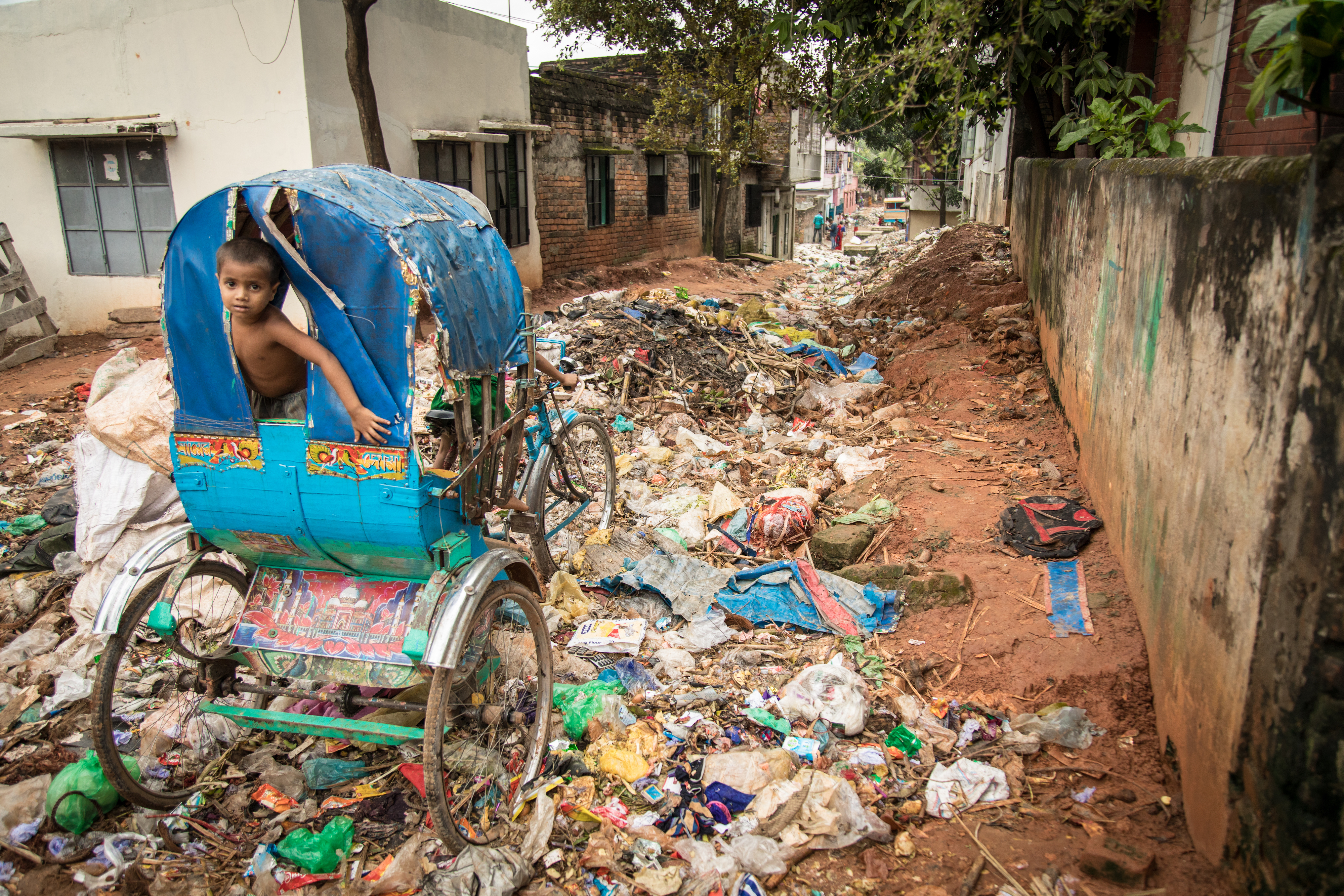
Net Free Seas
Abandoned or lost fishing gear is filling our ocean, becoming floating death traps for marine wildlife and ensnaring fish that would otherwise be caught and sold by artisanal fishers. The fates of communities are tied up with the health of the marine ecosystem, and we address this with Net Free Seas.
This project directly engages communities in Thailand and Indonesia in the collection, cleaning, selling and storing of plastic waste before it is sent to recyclers. The nets and rope collected are turned into a wide range of products by the recyclers, from industrial components to lifestyle products. Communities then receive income directly from the recyclers.
In the long term, recognizing that recycling alone cannot end plastic pollution, this project also drives policy interventions. While recycling currently offers an environmentally responsible solution for managing end-of-life fishing gear, our goal is to use the expertise we have developed through NFS to promote a comprehensive, full life cycle approach. This includes advocating for improved gear design and fostering sustainable fisheries practices.
Launched to great success in Thailand in 2020, the project has since expanded into pilot programs in Ghana and Indonesia. So far it has given coastal communities a second source of income by generating USD$68,505, removed around 196 tonnes of discarded fishing nets from the environment, landfills, or being burnt, and forged partnerships with the government and civil society. This project is kindly supported through grants supplied by the Norwegian Retailers’ Environment Fund, Rufford Foundation and Fisheries and Oceans Canada (DFO).
Bottle Free Seas
The world generated roughly 600 billion plastic bottles and containers in 2021, equating to about 25 million tons of plastic waste. Yet across all types of plastic, only 9% is recycled, while 22% is mismanaged, often ending up in landfills or, worse, leaking into the natural environment and polluting ecosystems.
BFS works to reduce the use of single-use plastic bottles in Bangkok, Thailand. Launched in 2023, in collaboration with the Bangkok Metropolitan Administration (BMA), the pilot stage of the project has installed 10 water refill stations across Bangkok to help decrease people’s dependency on single-use plastic bottles. When we surveyed the citizens of Bangkok, we found that 90% supported the installation of water refill stations, and that they would use them if they were clean, accessible and reliable.
So far, in around a year, one million bottles have been saved from the landfill by these refill stations. The stations have proven to be capable of reducing an average of 100,000 bottles per month and have saved approximately USD$206,371 for consumers who chose to refill their bottles at the BFS water refill stations. This means the project is keeping bottles out of the ocean and money in peoples’ pockets.
Thanks to the success of BFS, the BMA, in close partnership with the Refill Bangkok network, aims to establish 200 water refill stations by 2026. The success of BFS shows the world that there are simple, readily available, and publicly supported solutions to the plastic crisis.
You can learn more about Bottle Free Seas on our landing page here.
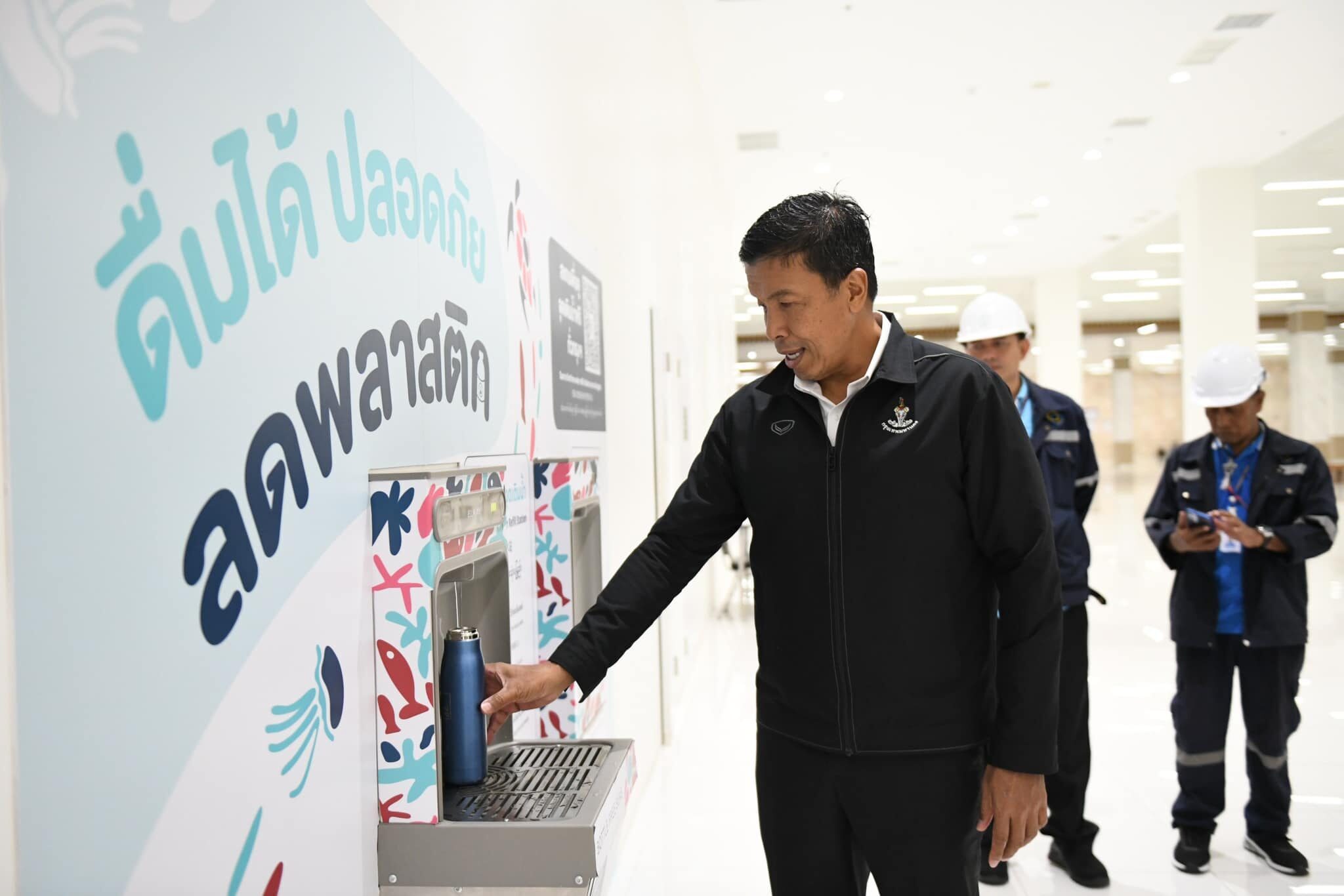
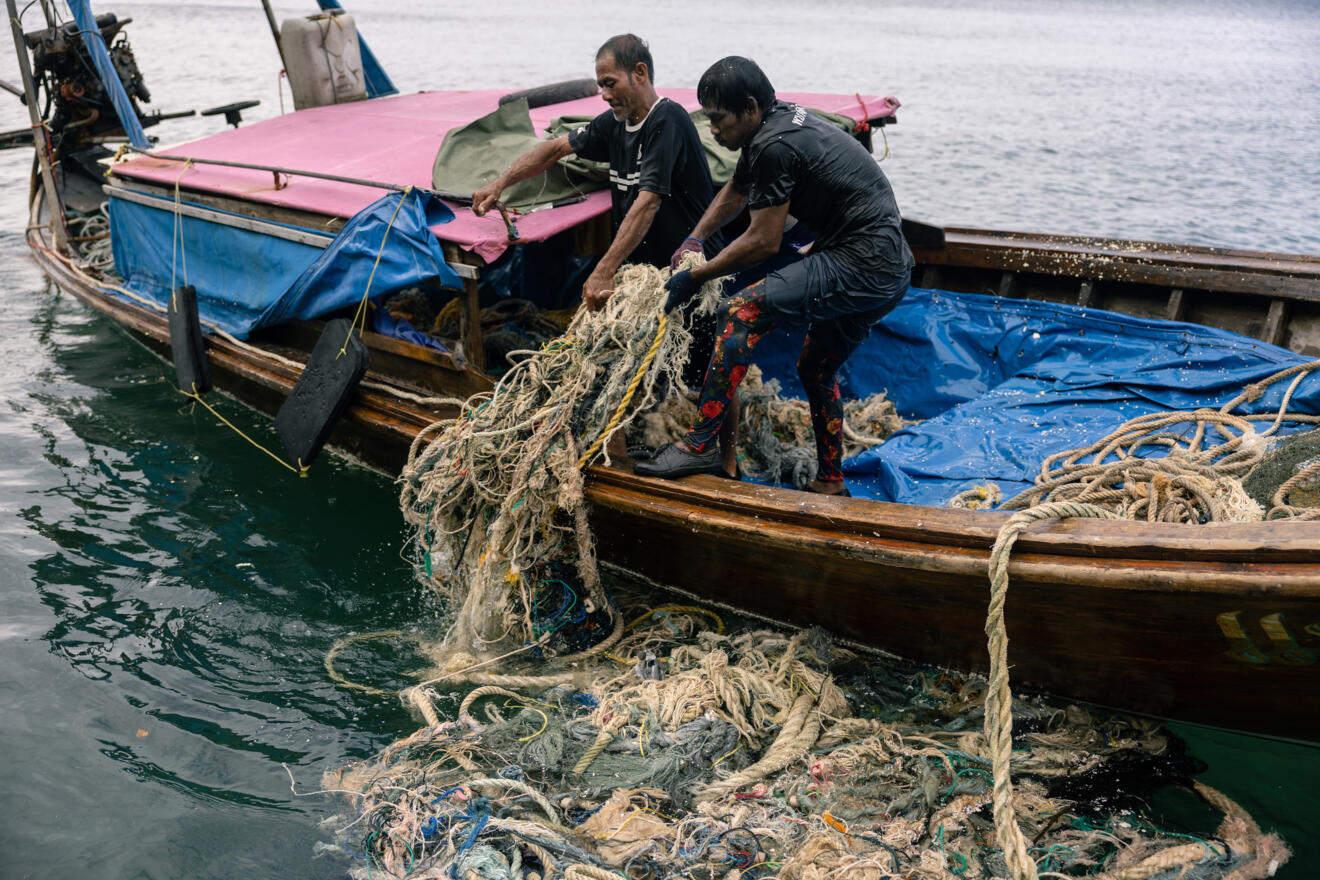
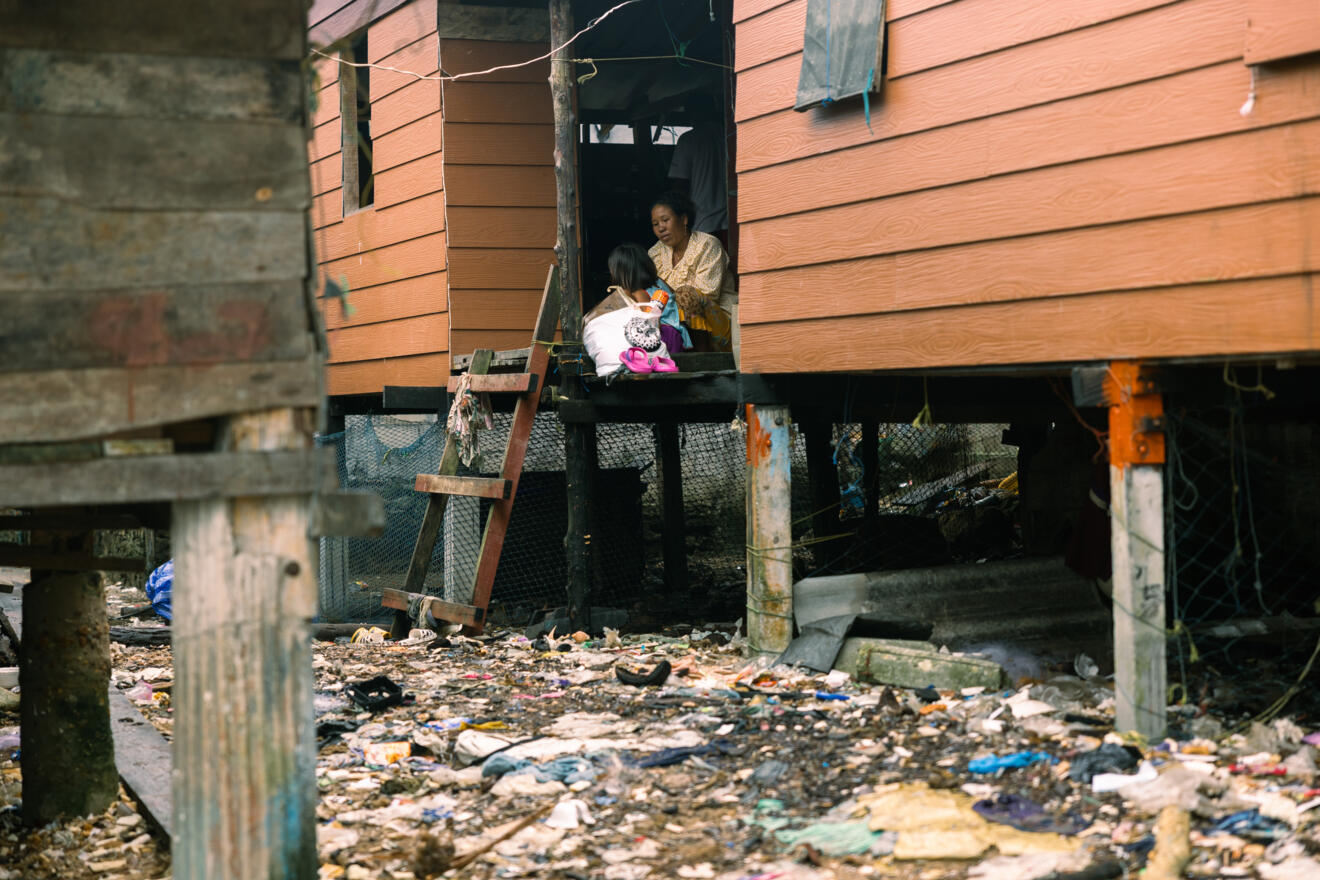
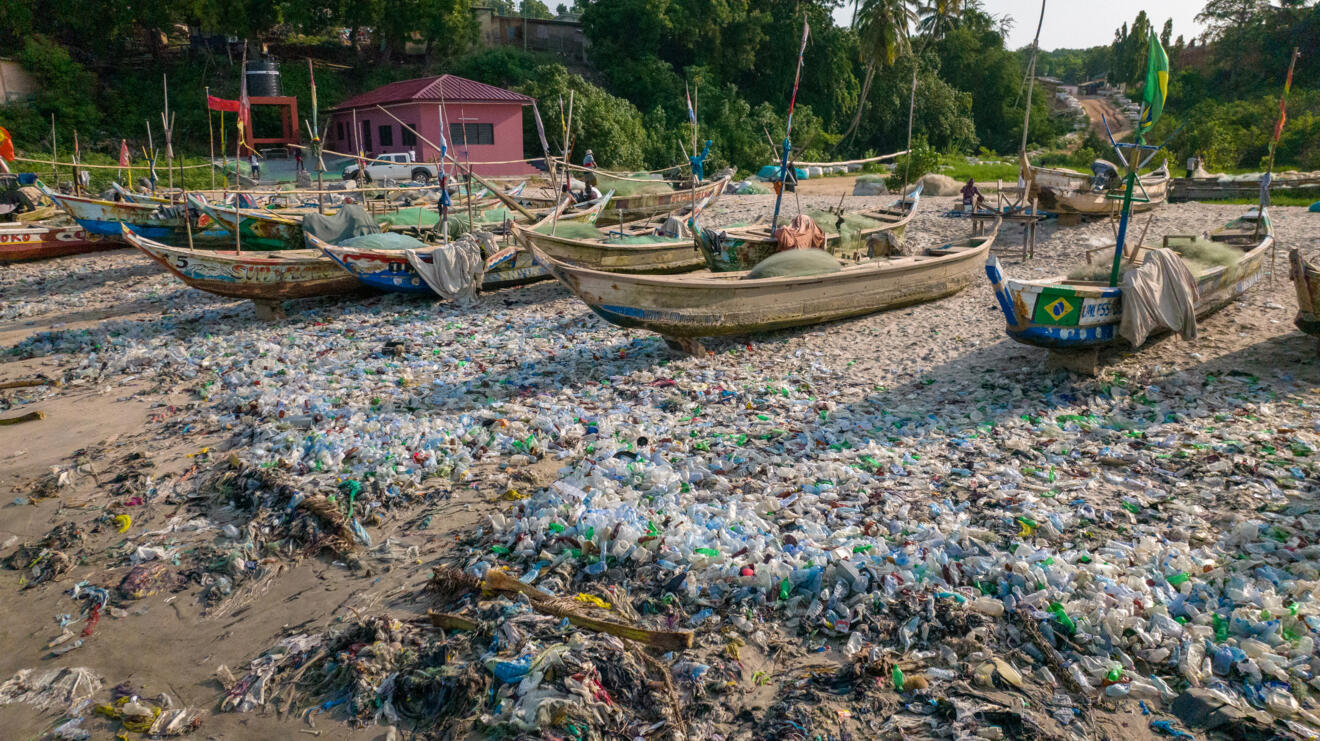
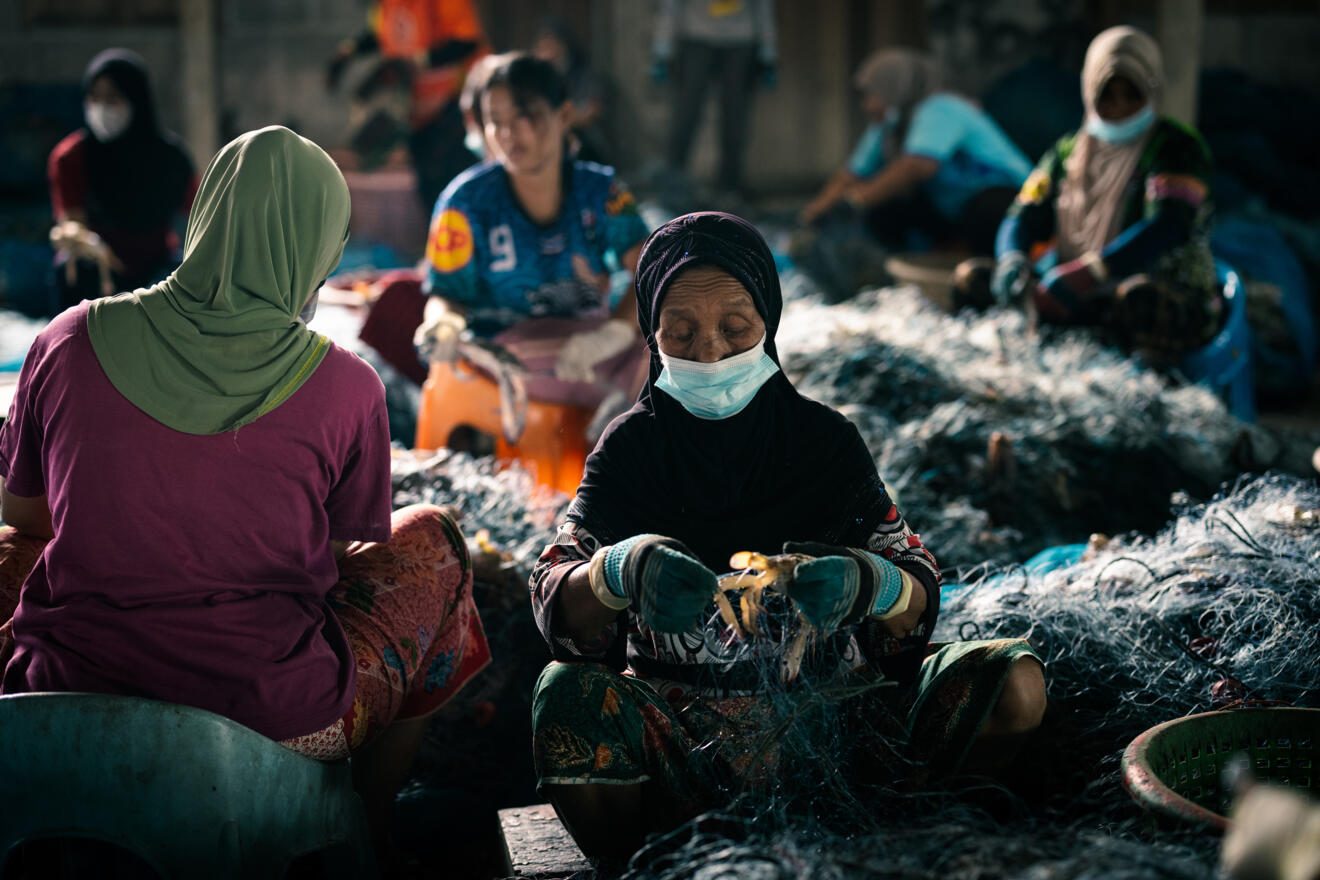
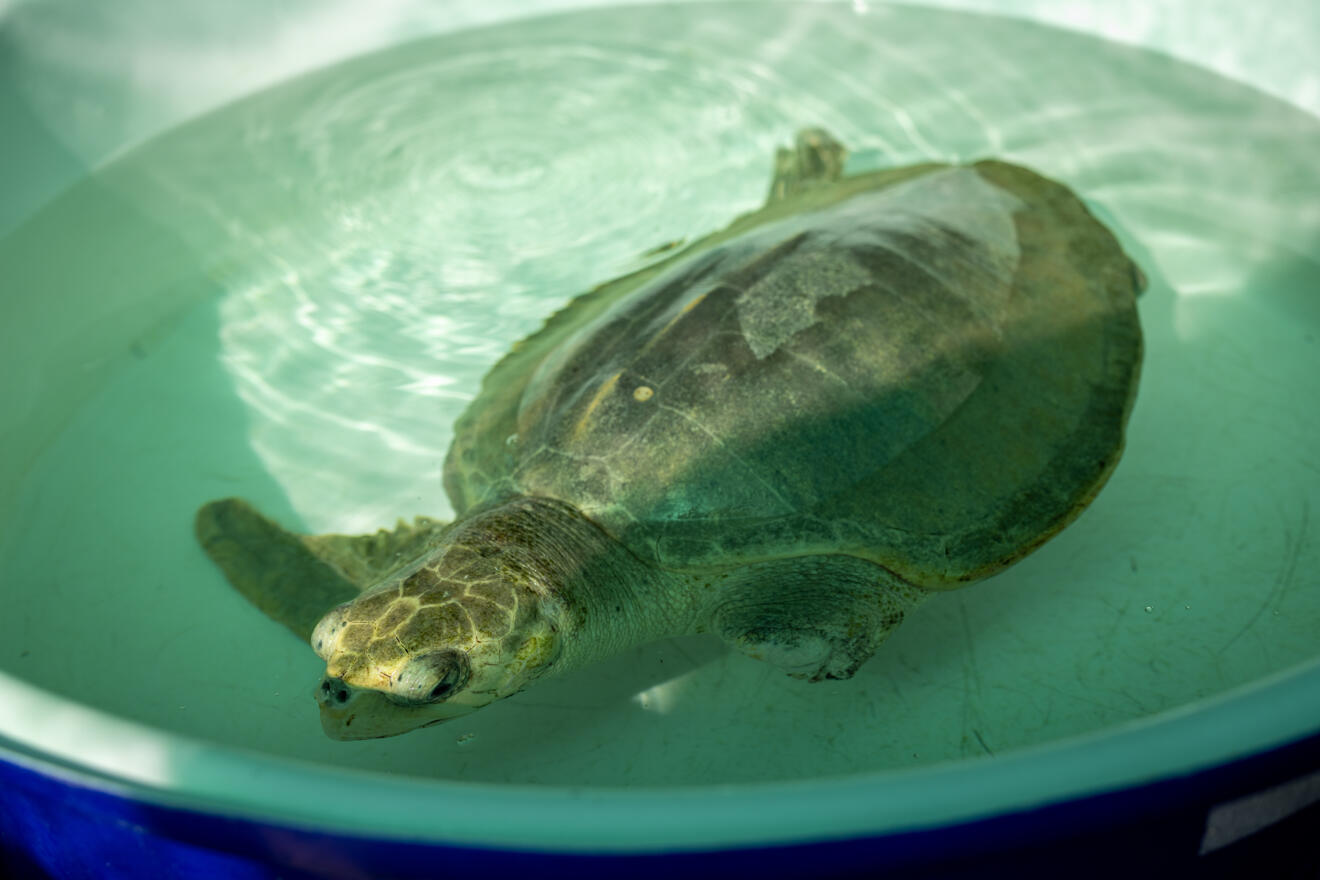
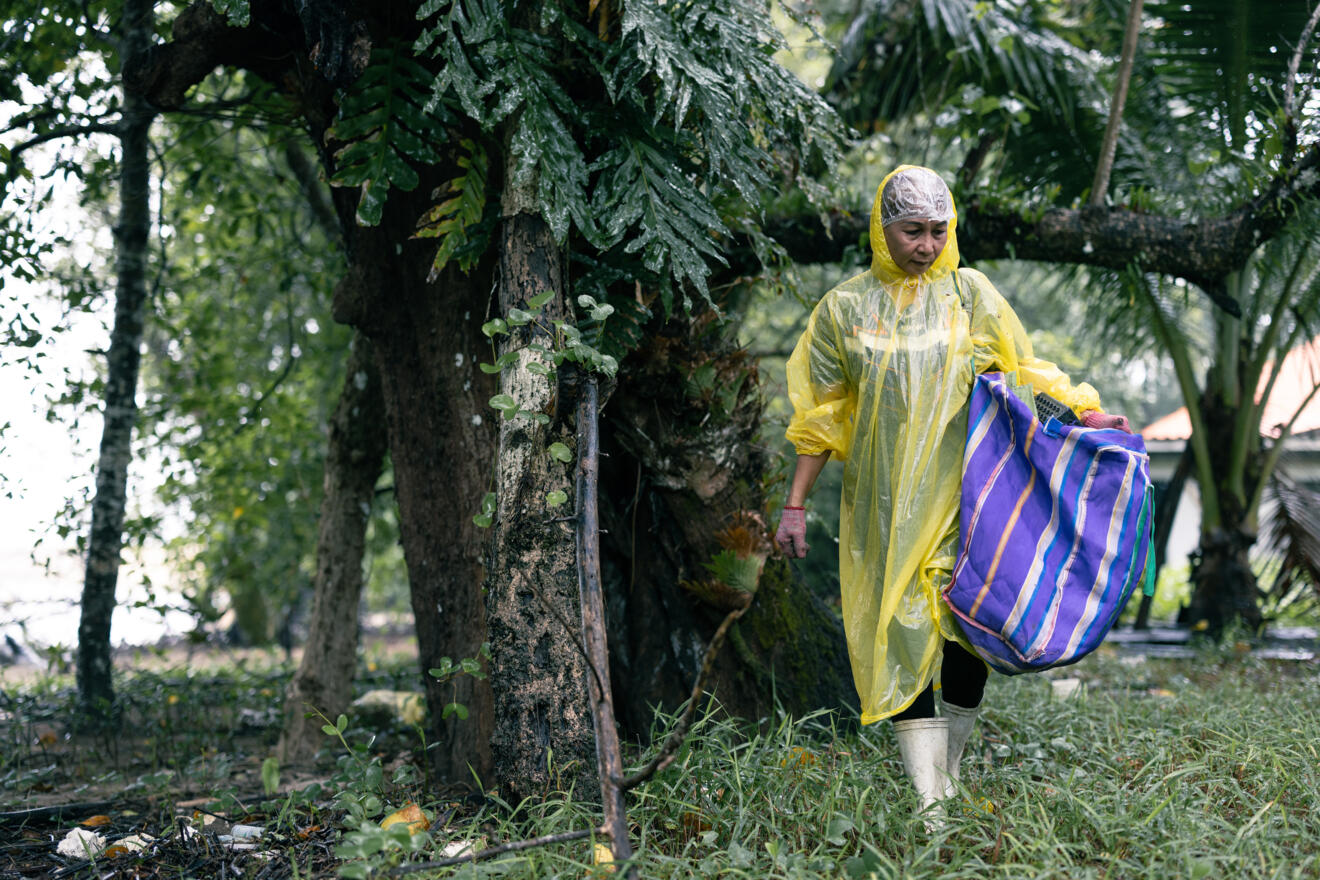
SIGN UP FOR OUR EMAILS AND STAY UP TO DATE WITH EJF

